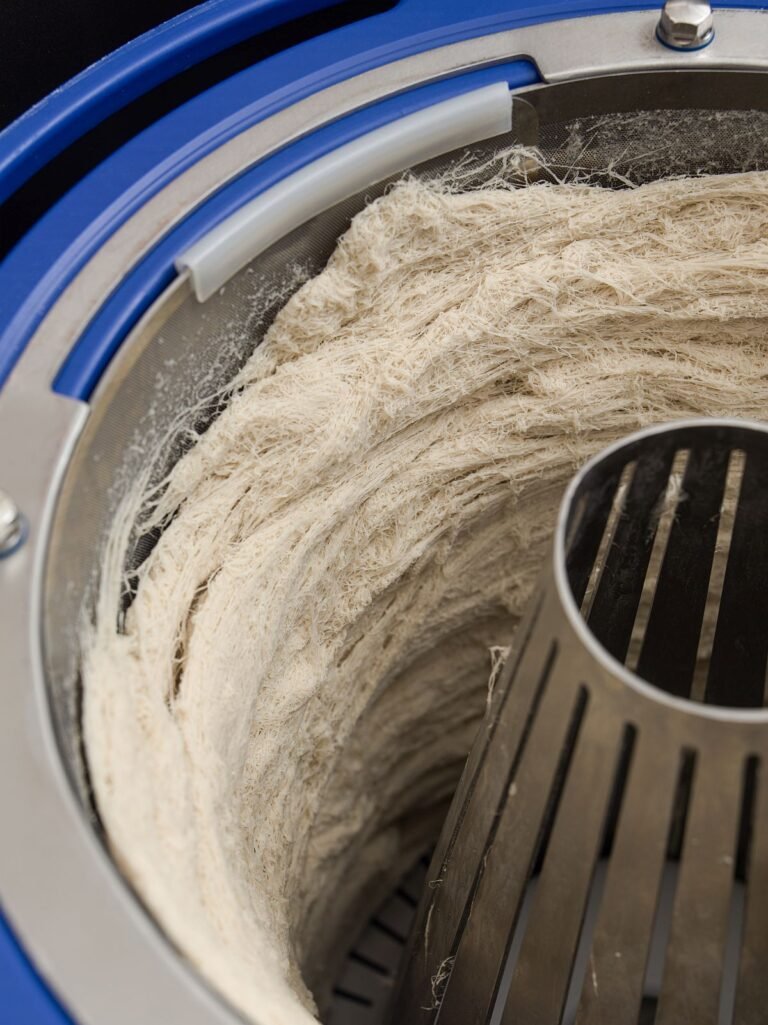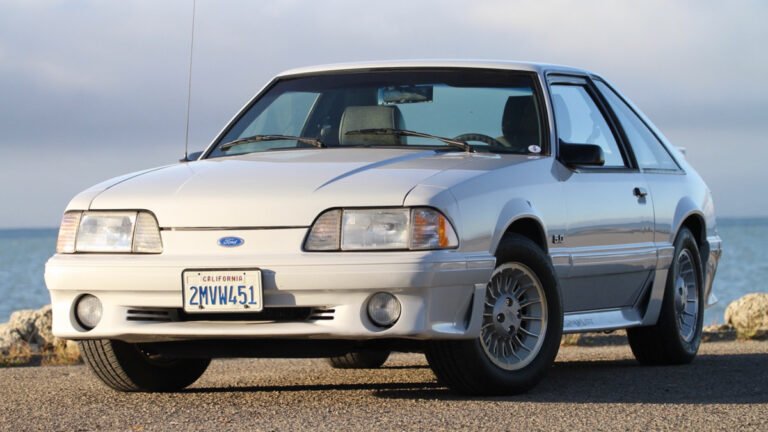After some bruising years for agrifoodtech, the froth is gone, the tourists have left, the pipeline is smaller, but it’s yielding “quality deals with defensible valuations,” says Mark Durno, managing partner, agrifood, at UK-based early-stage investor Rockstart.
The hangover has been real, however. With few exits and limited partners (LPs) sitting on their cash, early-stage investors have had to get more selective and more pragmatic. For Durno, the thesis hasn’t changed, but the playbook has.
LPs, he says, are reluctant to invest “at a time of market volatility, but we want to see more institutional funds flowing into that [early] stage of the market. If pension funds and institutional funds who have got long term perspectives are not invested in early stage now, there will be no growth stage companies.”
Durno (MD) joins AgFunderNews (AFN) to talk about EU policymakers’ shift from “farm to fork green” to “competitive and clean” and why he’s more interested in “decent exits” than mythical unicorns.
AFN: How would you characterize the funding landscape right now?
MD: We needed some kind of correction. But if there’s not distributions, if there’s no cash to recycle, it’s difficult to raise money, and then you have to prioritize lower risk opportunities. And that’s hard on early stage founders and also funds like our own.
We just have to keep on believing that the transition [to a more sustainable food system] is needed, which it is, therefore, when you start to see cash recycling, that’s when there’s going to be opportunities again for the best companies.
Although there are a lot fewer deals, the ones that are getting done are bigger and better. We recently closed up FloVision [AI for food production]. That was a nice deal. We had ALTR [nanotech to precisely control alcohol levels in beverages] close at the beginning of the summer and we’ve got another two deals in the pipeline that I can’t mention yet that are larger double digit millions. So deals are getting done.
AFN: Have we reached the bottom yet?
MD: I feel like it was so rough last year… nothing happened, nothing moved, we had to correct a big chunk of the portfolio. But now I’m starting to see these deals closing that are really quality deals with defensible valuations, and that makes me happy.
And then the wider market is starting to experience things like the Klarna IPO, which is great news for venture in general. I think we’ve hit the bottom and we’re going to slowly start to see an improvement.
AFN: Is AI eating up all VC dollars and deflecting capital from sectors like agrifoodtech?
MD: Yes, but it’s not just AI that’s taking capital away from agrifood. I think agrifood took capital away from agrifood because we had some big themes that flopped, and it came at a time when there was a wider market correction, and then investors voted with their feet and said, you know what, we need to look elsewhere for lower risk returns.
So we’ve got more education to do on agrifood. But the investors we’re co-investing with now are definitely not tourists. They know what they’re investing in, and that’s good news, because you still see quality companies starting to come up in the agrifood industry.
And my projection is, in a few years’ time, we won’t have unicorn exits, but we’ll have decent exits, and the wider investor community will gain confidence from that.
AFN: You’re an early-stage investor. Is the LP money there to support deals at this stage?
MD: We should acknowledge how difficult it has been to raise money for early stage funds and startups in the last couple of years. We understand why LPS struggle to allocate at a time of market volatility, but we want to see more institutional funds flowing into that stage of the market. If pension funds and institutional funds who have got long term perspectives are not invested in early stage now, there will be no growth stage companies.
AFN: What funds have you raised and are you actively investing now?
MD: We’re now on agrifood fund two. We did a first closing on that at the end of 2023, so in total, we’ve got about €40 million ($46.3 million) AUM across the two funds. We’ve got about 70 portfolio companies today and we’ve still got a number of positions to invest until 2027.
AFN: Where is the best deal flow coming from and what does the pipeline look like?
MD: The best deal flow always comes from personal introductions and networks. In my experience, referrals are really good. We hardly ever invest into inbound. There’s a lot less in the pipeline than there was two years ago. But the founders we do talk with tend to be a bit more serious about their tech.
AFN: How has your strategy evolved over the years?
MD: The original idea was to expand the early stage capital with bigger pre seed funds. The idea was we would invest very early pre seed and then we would keep on deploying capital beyond Series A in the best portfolio companies.
The market has corrected our assumption on that. So our thematic focus has not changed. It’s still very much about the transition to a regenerative and sustainable food supply for people. The geography hasn’t changed much; we’ve maybe become a little bit more European focused, a little bit more conscious of policy in the current climate.
But our financial criteria has changed a little bit in the sense that the whole markets had a shakedown. Investors have landed back in their slots. We are a pre seed investor and then we follow on to seed, whereas I think previously, we thought we could be a pre seed investor that would keep on going in the same fund up to series A or Series B.
So that’s been a big change, but it allows us to concentrate our capital at that very early stage. And now we’re one of the few players that’s doing those kind of early stage bets.
AFN: Are there companies you would have invested in five years ago that you definitely wouldn’t now?
MD: Probably yes. But I think for fund two, at the start of the fund term, we’ve been quite open to longer-to-market propositions. Some of these technologies require a longer time to market, so things like RNA coatings for seeds, or microbiome control units for insects instead of using pesticides, or some of your platform IP plays. Also, we’ve invested in [a company supplying] nanozymes as alternatives to enzymes. So these things need multiple years of trials.
But now we’re coming into the end of year two of the fund, we’re starting to look more towards the kind of classic software, more scalable, quicker to market [propositions]. So it’s a pretty pragmatic approach that we take to spreading risk across the portfolio but still staying on theme.
AFN: Are unicorns still a thing in agrifoodtech?
MD: We’re not looking for a unicorn. We’re looking for cues from industry and policy. If we can see that there’s an industry need to transition, for example we know that we need to reduce the use of chemical fertilizers and pesticides, that gives us a pretty clear direction to go in.
And then our hope and expectation is that there’s going to be trade sales coming through in the near future. I think there’s a couple of exits coming up, and Klarna’s IPO will help, even though it’s not agrifood, it actually a big injection of cash into the system. So no unicorn expectations but if we can look at decent businesses that have good gross margins, good protection on their business model, and they can defend a valuation based on actual business metrics rather than technology promise alone, then I think we’ll see some good exits.
AFN: Is the regulatory environment in Europe thwarting startups in the agrifood space?
MD: There’s that old joke that Europe’s main export is regulation. So there’s still frustration definitely. But I think what has changed in the last two years, if you look carefully at some of the policy, the vocabulary that some of these commissioners are using, it’s less about farm to fork green and more about competitive and clean. That’s kind of the shift that we’re seeing a little bit since 2023.
There’s a kind of encouragement from European policymakers to try and encourage a more competitive European landscape.
AFN: Give us your take on regenerative ag…
MD: Part of it is around education and how long it takes for a generation of farmers to shift. That’s not to say that every new farmer coming on board will be a regenerative agriculture farmer, but there’s definitely a cultural element to it, where you need a few influential farmers in each location to shift and showcase. It’s de risked, and then works, and then you get momentum and popularity. But that takes a long time.
Carbon credits are not really the way to solve it. They are too restrictive on farmers, but I think we’re still kind of early in the journey.
AFN: Who is ultimately going to foot the bill for things like regen ag or livestock methane reduction?
MD: I don’t think consumers are going to pay a green premium. Carbon credits, that’s part of the answer, perhaps, where there’s a tangible extraction, so no longer offsetting.
But the main answer needs to be in the underlying businesses. When we’re talking to companies in our portfolio that are late seed, Series A, the conversation is very much about gross margin and how to find your way to a stable operating model.
AFN: Tell me about some areas in agrifoodtech you’re excited about right now…
MD: We’re interested in platforms that will allow us to find products, or IP that will allow us to transition away from petrochemical applications. There’s a German startup we recently invested in called SenseUP. They do double strand RNA that they use as a coating that can extend the life of biologicals. The really cool thing about SenseUP is that they can run multiple experiments per year; it’s kind of like an IP wheelhouse just throwing out opportunities the whole time.
Same goes for a UK based portfolio company called BugBiome. They look at the insect microbiome and how the microbiome can control insect behavior as a pest deterrent.
We’re also looking at the need for nutritious, clean ingredients. A few portfolio companies to give a shout out to are REDUCED, a Danish company which is upcycling side streams into clean ingredients, Koppie (alt coffee) and Endless Food Co (alt chocolate).
AFN: Tell me about some applications of AI in agrifoodtech that interest you
MD: I think AI is rocket fuel for precision agriculture. And then we’re looking towards startups that can create a really deep library in their specific space. That’s what’s going to give the models an edge. One example in our portfolio is Cordulus of Denmark, which is doing micro weather stations. Another is Tunen in Germany, which is extracting operating data from farmers, and one brand new investment that we haven’t announced yet.
AFN: Will a second wave of companies in controlled environment agriculture (CEA) succeed?
MD: For indoor farming, to be honest, I found it difficult to marry up the numbers as I was lucky enough to have first-hand exposure in this area [before getting into agrifood investing]. So in 2016 I’d already decided that this was not a venture case for us.
A lot of money went into the space because it looks like a technological shift. It’s got a lot of bells and whistles that sound like transformation. But the underlying challenge for venture is that you’re still dealing with the unit economics of the head of lettuce, and there’s not a lot of margin.
There is a future for it, but it needs to be way more modest. I think we can all be very satisfied if we’ve got sophisticated greenhouse production close to towns and close to points of consumption that provide food security and fresh food. We don’t need to have, in my opinion, huge sums of money going into vertical, LED-driven [operations].
As for automation, you can’t always solve one technology issue with another technology. I think the vision was noble but usually when you’re investing into a technology, having broad application across industries is a de-risking factor. Here we were seeing automation for indoor farming, which itself had not been de-risked, so you are compounding the risk.
AFN: You talk about EU policy shifting from the green transition to resilience? What do you mean?
MD: If you look at capital coming from the European Investment Bank and European funds, the narrative has very much moved away from being about the green transition. It’s now about resilience, for good reasons.
Depending on which source I talk to, you’re talking about upwards of 80% of funding being moved to a resilience strategy rather than green transition strategy. So you have to think about what role your startup or your fund plays within food resilience.
So it’s less about here’s the green transition we all wish and hope for, but more like, what’s the green transition we absolutely need in order to safeguard our food security? We don’t have healthy soils, we’re going to have less nutritious food. We’re going to have more fires and more flooding, so let’s continue to invest in regenerative agriculture and continue to invest in green initiatives. Not only is that good for our climate, it’s also good for our security.
AFN: You have a portco that does desalination with microbes?
MD: Yes! Aestuarium, a university spin out from Maastricht. Usually desalination is done with reverse osmosis, which is quite expensive mainly due to the energy cost [as high pressure is needed to force seawater through semipermeable membranes] and it has quite a negative impact on coastal regions, because you get all of the brine that impacts the ecology of the coast [if it is released directly into the sea without proper dispersion or dilution].
Aestuarium has bacteria you can kind of switch on and off. So when you switch them on, they suck up the salt, and then you can collect the bacteria that’s full of salt, put it somewhere, and then use specific frequencies of light to switch it off, and it releases the salt. You can do up to 80% of the job of reverse osmosis using this bacteria. So they use it as a pre-filtration step for reverse osmosis.
They’ve got initial lab production rolling, and they’re having first talks with industry around running a couple of pilots in the next 12 months.
AFN: Tell me about the biochar network…
MD: We launched an initiative with GUDP [Danish government-backed Green Development and Demonstration Program] to build out an ecosystem of stakeholders in the biochar space earlier this year. The goal is to bring together investors, farmers, suppliers, fertilizer companies, anyone who has got an interest in soil and or biochar and get a bit of a conversation going.
We’ve invested in BCHAR [tech that transforms ag waste into biochar, a soil enhancer that helps in carbon capture and improves soil health] and planboo [a biochar carbon removal company generating carbon dioxide removal credits from bamboo and other plant waste] and point2hectare, which does biochar coatings. With all of them, it’s kind of connected to MRV and carbon credits.
We’re still figuring out if biochar as a standalone product is… it’s probably not a venture case, but how does it fit into farm operations?
AFN: Tell me about your pet peeves as an investor
MD: Founders that do not clearly spell out what their tech does for the customer. What are you actually doing? Just tell me what it does… That’s really annoying.
Also, I’ve recently started getting annoyed at founders who ask for a certain amount of money, and then when you challenge them on it, or say maybe it’s too much, or you don’t want to invest in a round that large, they tell you that they don’t need that much money.
But why put it in a deck and send it to an investor? Don’t just try and fish for as much as you can get. That’s how we landed up in this mess in the first place.
The post Rockstart’s Mark Durno on agrifoodtech’s next chapter: smaller pipelines, better deals appeared first on AgFunderNews.




